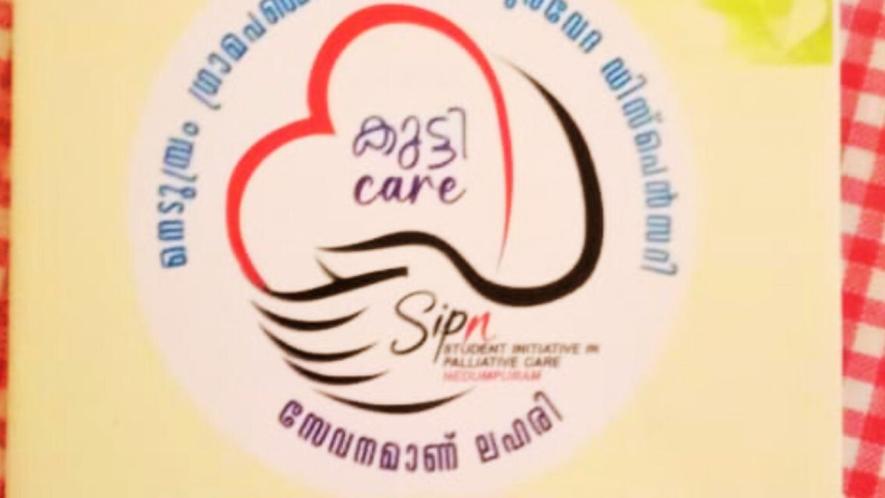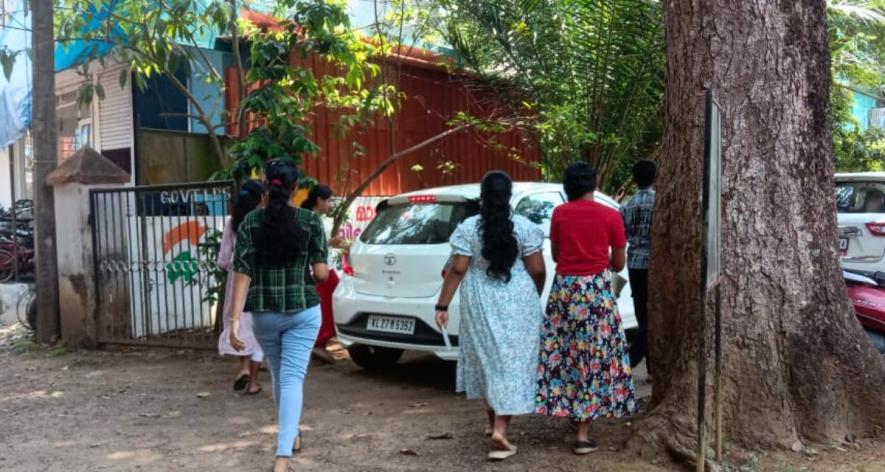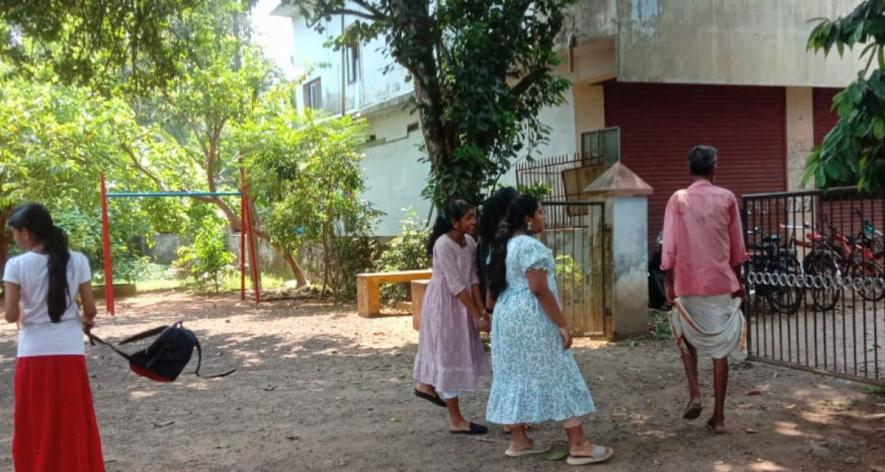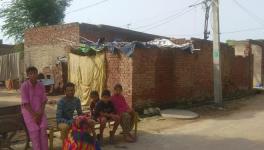How Kutti Care is Giving Children in This Kerala Village Purpose, and its Elders Presence

Kutti Care diary that the students use (Photo - Jessy Thuruthel, 101Reporters)
Pathanamthitta, Kerala: Every few days, KS Devananda (16) and M Malavika (15) hop on their bicycles in Ward 11 of Kerala’s Nedumpuram gram panchayat in Pathanamthitta district, riding a few kilometres to visit the homes of elderly patients. On a recent morning, their first stop was the house of Krishnakumari (77) in Ward 6.
Until a couple of weeks ago, Krishnakumari was confined indoors after a fall six months ago but now she can manage to walk up to the door using a walker.
Her only son works abroad, her daughter-in-law has a job, and her grandchildren are away at school. Most days, she is alone. “Though a home nurse comes, she’s busy with other tasks. But when these children visit, it lifts my spirits,” she told 101Reporters. “Talking to them gives me a kind of positive energy that helps me deal with my loneliness.”
Devananda and Malavika are among the first volunteers of Kutti Care — children palliative volunteers — a unique initiative by the Nedumpuram gram panchayat in collaboration with the Nedumpuram Ayurveda Dispensary. It aims to pair elderly and ailing patients with young volunteers from the community, not for medical help, but simply for time, conversation and connection.

The first assignment for the students was to survey and identify bedridden patients in their areas (Photo - Jessy Thuruthel, 101Reporters).
Building a bridge
Both children have been involved with the programme for three months and say that the experience has transformed them.
Devandana, who is a Class 12 student at Devaswom Board Higher Secondary School, Kavumbhagam, said: “My mother Maya is a ward member, so I had already visited houses with her before. I love talking to people. If my presence makes someone happy, that’s a blessing. I feel proud to be part of Kutti Care.”
Malavika, a Class 10 student at MGM Higher Secondary School, added, “Krishnakumari Amma loves reading and talking about the Puranas and Itihasas. She shared so much wisdom and life experience with us. She even told us to keep visiting again and again.”
After leaving Krishnakumari’s home, Devananda continued her rounds with her mother, this time visiting Manoharan (81), a bedridden patient. Though he spoke little to Devananda, she said, “He opened up more with my mother. I want to visit again and become friends with him. Then maybe he’ll talk to me too.”
The patients appreciate these visits not only as a break from loneliness but as a bridge between generations. “These days, children don’t often spend time with the elderly,” Krishnakumari said. “This project builds compassion in them. It’s good for both patients and children.”
How Kutti Care took shape
The idea for Kutti Care came from Dr Abinesh Gopan, an Ayurveda doctor at the Nedumpuram dispensary and an active member of a palliative society in his hometown, Vallamkulam. Inspired by the model of “one volunteer for one patient,” he proposed a similar initiative tailored for children, especially as an antidote to the rising influence of drugs among youth.
Nedumpuram panchayat, with a population of nearly 13,000 across 3,420 families, lies in a state grappling with a growing drug crisis. In 2024 alone, Kerala recorded 27,701 cases under the Narcotic Drugs and Psychotropic Substances Act, 1985 — three times the number in Punjab. “If we don’t monitor teenagers, we risk losing an entire generation,” said Kochi-based psychiatrist Dr CJ John. “Peer groups are often the entry point into substance use.”
“I noticed how easily children are getting pulled into substance use,” Dr Gopan said. “So I wanted to give them something meaningful to focus on. Kutticare is built on that idea: ‘Let service be your addiction.’”
The panchayat extended full support to the initiative, which requires no official financial allocation. Dr Gopan personally covers expenses like snacks for the children, while printing costs are borne by the dispensary’s hospital committee. So far, around 25 students from Classes 8 to 12 have signed up.
The project kicked off with an introductory meeting on April 4 at the Nedumpuram Government LP School, attended by Panchayat President Prasanna Kumari, Vice President Sylesh, and Ward member Maya. Sixteen students and their parents were present. By the next meeting on April 16, the number of children had nearly doubled.

Glimpse of the Kutti Care team (Photo - Jessy Thuruthel, 101Reporters)
Building compassion
To prepare students for their roles, Kutti Care began with introductory sessions on palliative care, led by project head Dr Gopan. Around 25 student volunteers from Classes 8 to 12 have been grouped ward-wise across the 13 wards of Nedumpuram gram panchayat.
Their first assignment was to survey and identify bedridden patients in their areas. While the Palliative Care Department already maintains a list of 113 such individuals, this exercise is meant to train the children in patient interaction and community engagement. In the second phase, they cross-checked their findings with the existing data to develop observation and documentation skills.
Each volunteer also received a Kutti Care diary to note down their visit details, thoughts, or even sketches. These are reviewed monthly. Every three months, top-performing students, judged on the number of visits, patient feedback, and overall involvement, are recognised with small prizes.
Dr Gopalan explained children are encouraged to visit one or two patients once or twice a month, with no strict rules on the duration.
Palliative nurse Suchithra praised the model for addressing two major challenges: lack of volunteers and lack of patient engagement. “In a busy place like Thiruvalla [municipality], nobody has time for the bedridden. However after 5–6 visits, the children build a rapport, and the patients start opening up. Kutti Care has helped us bridge that gap.”
Nedumpuram Gram Panchayat President Prasanna Kumari said, “Children often lose their way because they lack purpose. Through Kutti Care, we want to instill the value of service in them.”
Vice President Shailesh added that the Kerala government is considering grace marks for palliative care volunteers, similar to schemes for NCC or the Student Police Cadet programme.
Child Welfare Committee Chairman Advocate N Rajeev also endorsed the initiative, calling it a response to a larger social crisis. “Today’s children often lack empathy because everything comes easy. Volunteering like this shows them what it means to use their life and health for others.”
More than extracurricular
For many volunteers, Kutti Care is not just an extracurricular activity—it’s a personal mission. “Serving others is something I love the most,” said Avani, a student in Class 8. “I took this decision on my own. I like talking to elderly people. I believe this will help me in my studies and in building my personality.”
Malavika, who joined the project entirely by choice, echoed this sentiment. “Even if I don’t get grace marks, I will continue this work. I believe in the power of service,” she said.
For the patients, this service offers something simple: presence. Many are bedridden, nearing the end of their lives, and struggling with both physical pain and emotional isolation. When a child sits by their side, listen to their stories, and simply spend time with them, it breaks the silence and brings them comfort.
But the benefits go both ways. By visiting the sick and elderly, the children begin to understand the realities of vulnerability—and their power to bring relief. They don’t provide medical treatment, but they observe, listen, and report any concerns to healthcare professionals. First-aid training is optional and offered on request.
Challenges
However, Kutti Care faces some logistical challenges. The most pressing is communication. “Most students don’t have phones. We often have to reach them through their parents, who may be daily wage workers and can’t always pass on messages in time,” said Dr Gopan.
Currently, Dr Gopan is the only person handling the initiative. With 13 wards in the panchayat and growing volunteer interest, he plans to establish ward-level leadership teams after the monsoon, supported by local elected members. A monitoring committee is also on the cards, along with a full-day workshop and a “passing out” ceremony during the upcoming Onam holidays.
However, the spirit of the programme persists. “If children are involved in this kind of service early on, it will not just help their families in the future—it will help the whole country,” Rajeev said. “This project sows the seeds of empathy.”
Jessy Thuruthel is a freelance journalist and a member of 101Reporters, a pan-India network of grassroots reporters.
Get the latest reports & analysis with people's perspective on Protests, movements & deep analytical videos, discussions of the current affairs in your Telegram app. Subscribe to NewsClick's Telegram channel & get Real-Time updates on stories, as they get published on our website.

















